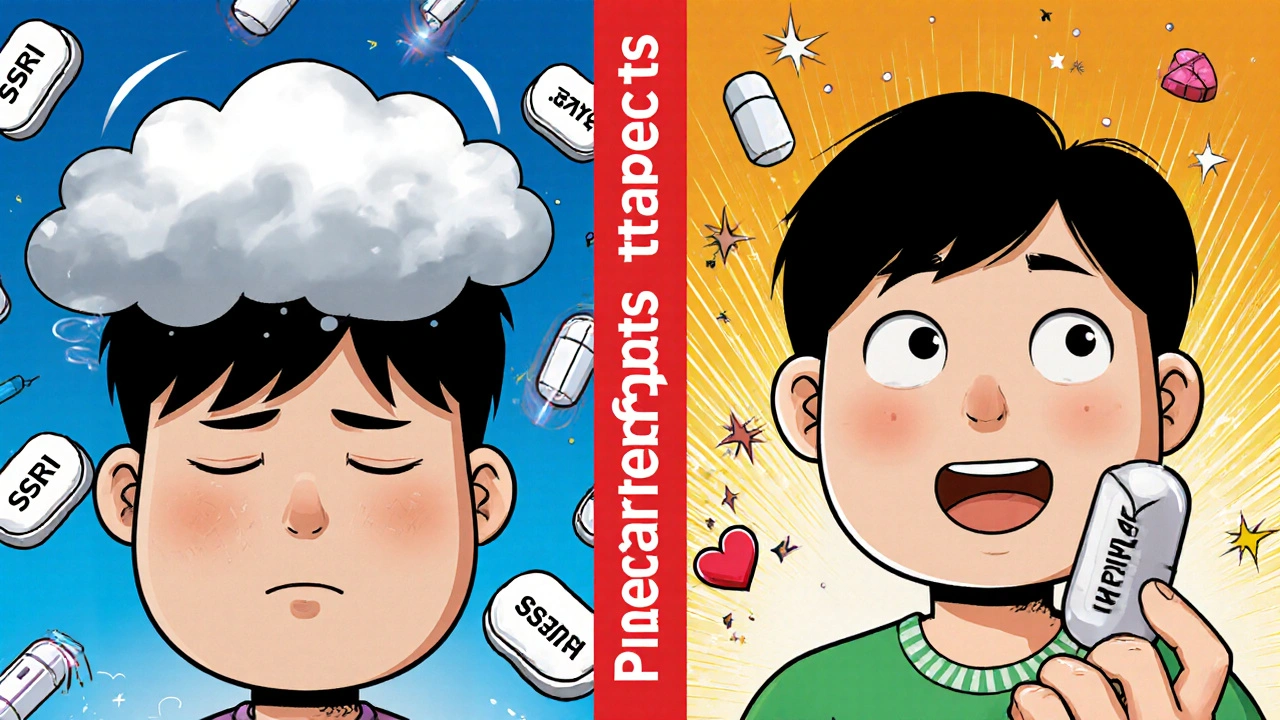Sexual Side Effects of Antidepressants: What You Need to Know
When you start taking an antidepressant, a medication used to treat depression and some anxiety disorders by balancing brain chemicals like serotonin. Also known as SSRIs or SNRIs, these drugs help millions feel better—but for a lot of people, they come with an unwanted side effect: trouble with sex. It’s not rare. Studies show up to 7 in 10 people on SSRIs like sertraline or escitalopram report changes in libido, arousal, or orgasm. This isn’t just "feeling down"—it’s a physical reaction tied to how these drugs affect serotonin in the brain.
These changes aren’t the same for everyone. Some lose interest in sex entirely. Others can get aroused but can’t reach orgasm, even after a long time. Men might struggle to get or keep an erection. Women may notice less vaginal lubrication or reduced sensitivity. These aren’t just "in your head"—they’re measurable, documented effects. And they often show up within weeks of starting the drug, not months. What’s worse? Many people don’t tell their doctor because they feel embarrassed or think it’s normal. But it’s not something you have to live with. There are ways to manage it: switching meds, lowering the dose, adding another drug like bupropion, or trying non-drug approaches like therapy or timing sex around your dose.
It’s also important to know this isn’t just about the drug itself. Stopping antidepressants suddenly can cause withdrawal symptoms that include sexual dysfunction too. That’s why tapering off under medical supervision matters. And while some people assume these side effects fade over time, for many they stick around as long as they’re on the medication. That’s why tracking your symptoms and talking openly with your provider is key. You’re not alone—this is one of the most common reasons people quit their antidepressants. But quitting without a plan can make depression worse. The goal isn’t to suffer through it, but to find a balance that works for your mental health and your quality of life.
Below, you’ll find real, practical guides on how these side effects show up, what medications are more likely to cause them, how to spot the difference between drug effects and depression itself, and what options exist when the problem doesn’t go away. Whether you’re just starting treatment or have been dealing with this for months, there’s information here that can help you take back control.

